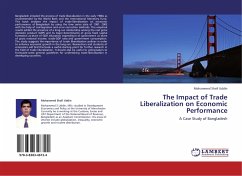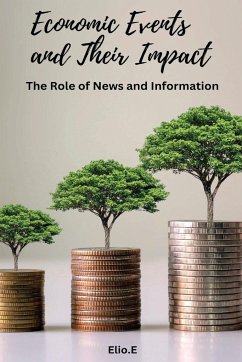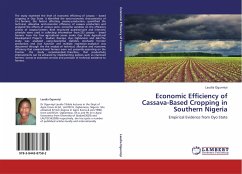
The Impact of Trade Liberalization on Economic Performance
A Case Study of Bangladesh
Versandkostenfrei!
Versandfertig in 6-10 Tagen
32,99 €
inkl. MwSt.

PAYBACK Punkte
16 °P sammeln!
Bangladesh initiated the process of trade liberalization in the early 1980s as recommended by the World Bank and the International Monetary Fund. This book analyses the impact of trade liberalization on economic performance of Bangladesh by using the time series data of 1981-2005 with the help of cointegration and error correction methods. The empirical results exhibit the presence of a long-run relationship among the real gross domestic product (GDP) and its major determinants of gross fixed capital formation as share of GDP, education expenditure of government as share of gross national inco...
Bangladesh initiated the process of trade liberalization in the early 1980s as recommended by the World Bank and the International Monetary Fund. This book analyses the impact of trade liberalization on economic performance of Bangladesh by using the time series data of 1981-2005 with the help of cointegration and error correction methods. The empirical results exhibit the presence of a long-run relationship among the real gross domestic product (GDP) and its major determinants of gross fixed capital formation as share of GDP, education expenditure of government as share of gross national income, trade-GDP ratio and government consumption. The study suggests the importance of trade liberalization policies in order to enhance economic growth in the long-run. Researchers and students of economics will find this book a useful starting point for further research in the field of trade liberalization. It should also be useful to policymakers to formulate some general guidelines for undertaking trade liberalization in developing countries.












